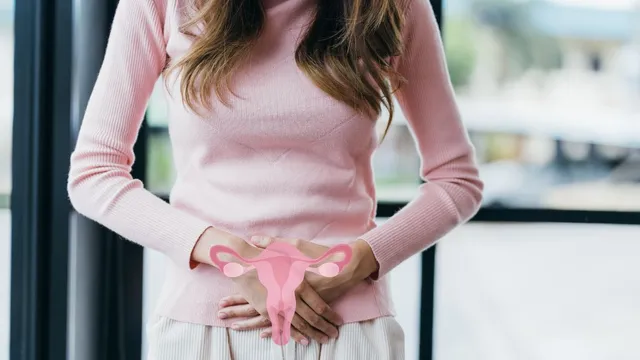- By Priyanka Munshi
- Fri, 13 Sep 2024 05:13 PM (IST)
- Source:JND
Understanding everything about PCOS (Polycystic Ovary Syndrome) and reproductive challenges is extremely important for every woman, especially when it comes to overcoming fertility problems. PCOS is a common hormonal disorder that affects many women of reproductive age and can lead to irregular menstrual cycles, excessive weight gain, increased hair growth, and significant challenges in conception. Knowing the details of this condition is crucial for taking the first steps in managing symptoms and improving fertility.
Many women do not take this seriously enough and neglect maintaining a healthy lifestyle, such as eating balanced meals and engaging in physical activities like walking or exercising, which can naturally have a positive impact on PCOS and boost fertility. There are also medical treatments available, such as medications to regulate hormones or procedures like IVF, which can help women make better decisions about their reproductive health. In a conversation with Jaran English Dr. Kaishreen Khan, a consultant obstetrician and gynecologist at Motherhood Hospitals in Kharadi, Pune, discussed the impact of PCOS on a woman's reproductive health.
According to Dr. Kaishreen, PCOS is a hormonal condition commonly seen in women of reproductive age. Women with PCOS may experience irregular menstrual cycles, excess body or facial hair, enlarged ovaries with fluid-filled sacs, weight gain, acne, oily skin, thinning hair, dark skin patches, and headaches. This condition raises the risk of type 2 diabetes, gestational diabetes, heart disease, high blood pressure, high LDL cholesterol, low HDL cholesterol, sleep apnea, and stroke. Moreover, PCOS is known to significantly affect reproductive health.
Also Read: Can Dehydration Cause Kidney Stones? Know From Expert
PCOS And Reproductive Health:
- PCOS is one of the leading causes of infertility in women. Women with PCOS may not ovulate every month, making it difficult to conceive and fulfill their dream of motherhood.
- Women with PCOS frequently struggle with irregular menstrual cycles, which can lead to prolonged periods of anovulation, meaning they do not release eggs regularly. This can delay conception, causing emotional strain and anxiety as the journey to motherhood involves challenges.
- Women with PCOS can experience pregnancy complications such as gestational diabetes, irregular uterine bleeding, miscarriage, or premature birth. Therefore, it is imperative to manage PCOS with the help of an expert.
- PCOS can affect a woman's sexual function due to issues such as ovulation disorders, obesity, and hyperandrogenism.
How Can Women With PCOS Overcome Reproductive Health Challenges?
Dr. Kaishreen explained that a PCOS diagnosis can be overwhelming for women. However, there are proactive strategies that can help women regain control over their reproductive health. It is important to eat a diet consisting of whole foods and opt for anti-inflammatory foods. Include leafy greens, fatty fish, nuts, and seeds to help control blood sugar levels. Cut down on junk, spicy, oily, canned, and processed foods. Adopting healthy lifestyle choices and getting adequate sleep are also essential.
Also Read: Urinating More Often Than Usual? Know Possible Causes And Treatments From Expert
Exercise daily for at least 45 minutes by doing activities such as yoga, strength training, walking, cycling, swimming, going to the gym, or Pilates. Physical activity can help manage weight and improve mood. Managing stress through meditation or engaging in activities you enjoy, such as dancing, listening to music, or learning a new skill, is also beneficial.
Women with PCOS can still get pregnant with the help of assisted reproductive technologies (ARTs), such as in vitro fertilization (IVF) or egg freezing. It is essential to consult an expert who can guide you in pregnancy planning. By following the tips in this article, you can take better care of your reproductive health, he added.

